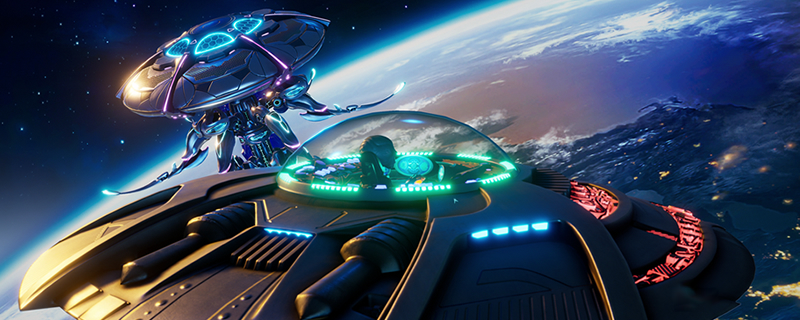Destroy All Human PC Performance Review and Optimisation Guide
Destroy All Human PC Performance Review and Optimisation Guide
For many PC gamers, Destroy All Humans’ 2020 remake will be their entry point into the series, and with a Steam price of £24.99, it may be worth a look.Â
Today we will be looking at Destroy All Humans’ PC version, controlling Crypto 137 as he harvests 1950s America for human DNA. Through our analysis, we will be showing you how to get the best performance out of the game and what kind of hardware you will need to run Destroy All Humans at 60 FPS on PC.Â
PC gamers will be glad to know that Destroy All Humans runs well on the platform, but that the game has several settings which players can alter to boost their framerates. We will be covering this in more detail on page 5. There’s one setting that boosted our framerates by almost 40%, making it the most impactful graphics setting that the game has to offer. Â
Â
Contents
–Â PC System Requirements & Graphics Options
– Graphical settings comparisons
– CPU Performance – Incredible CPU Scaling
– Navi VS Turing – RX 5700 VS RTX 2060 (Low, Med Default and Max settings)
– Settings Scaling and Optimisation Tips
–Â 1080p Performance
–Â 1440p Performance
–Â 4K Performance
–Â Conclusion
Â
GPU drivers
When testing Destroy All Humans’ PC version, we opted to use the newest drivers from both the Radeon and Geforce camps. These drivers are AMD’s Radeon Software Adrenalin Edition 20.7.2 driver as well as Nvidia’s Geforce 451.85 HotFix driver.
Testing Methodology
OC3D is a website that is dedicated to PC hardware, so you better believe that we test every game on a wide range of hardware configurations. This commitment to variety means that we will be using both Intel and AMD based testbeds as well as a range of GPU offerings from both Nvidia and Radeon.Â
Our primary test system uses Intel’s X99 platform, containing an Intel Core i7 6900K at a fixed clock speed of 4GHz. This testbed will use 16GB of Corsair Vengeance DDR4 memory and will be powered and cooled by an HX1200i PSU and an H110i AIO liquid cooler respectively, with everything sitting inside a Corsair 460X chassis. In this system, we are using an ASUS Strix X99 motherboard.
The system below will be used to conduct the majority of our game testing. This system will be used in this review unless otherwise stated.
Within the next few weeks, OC3D will be transitioning to a new games test system. We will update you on the specifications and performance of this test system in an upcoming article.Â
Â
Game Test Rig
Intel i7 6900K @4.0 GHz
ASUS X99 Strix
Corsair Vengeance LP 4x4GB DDR4 3200MHz
Corsair HX1200i
Corsair H110i GT
Windows 10 x64 “May 2019” Update
Â
GPU Selection
No gaming test suite would be complete without a large selection of GPUs. At OC3D our current test suite covers Nvidia’s RTX 20-series and GTX 10-series alongside AMD’s RX Vega and RX 500 series graphics cards.
Starting with Metro Exodus, we began testing new PC games with Nvidia’s latest RTX series of graphics cards. In our testing, we currently use the mid-range RTX 2060 and uber high-end RTX 2080 Ti entering our graphics card lineup. In time we hope to have a Radeon RX 5700 graphics card for RTX 2060 VS RX 5700 comparisons.Â
With this performance analysis, OC3D’s main review staff has been able to work together from across the UK to deliver wider levels of performance testing than is common for our gaming content. This has enabled us to add a wider range of GPUs to our test suite for this review.Â
Radeon RX 5700 Series – Navi (RDNA)
– Powercolor Radeon RX 5700 XT Red DevilÂ
– Powercolor Radeon RX 5700 Red Devil
Geforce RTX 20-Series & GTX 16-Series
– Nvidia RTX 2080 Ti Founders Edition
– Nvidia RTX 2060 Founders Edition
– Palit GTX 1660 Super StormX
Geforce GTX 10-series
– Nvidia GTX 1080 Founders Edition
– Nvidia GTX 1070 Founders Edition
– ASUS GTX 1060 Strix Gaming OC
Â
AMD RX Vega Series
– AMD RX Vega 56
AMD RX 500 Series
– AMD RX 580 Strix OCÂ Â




